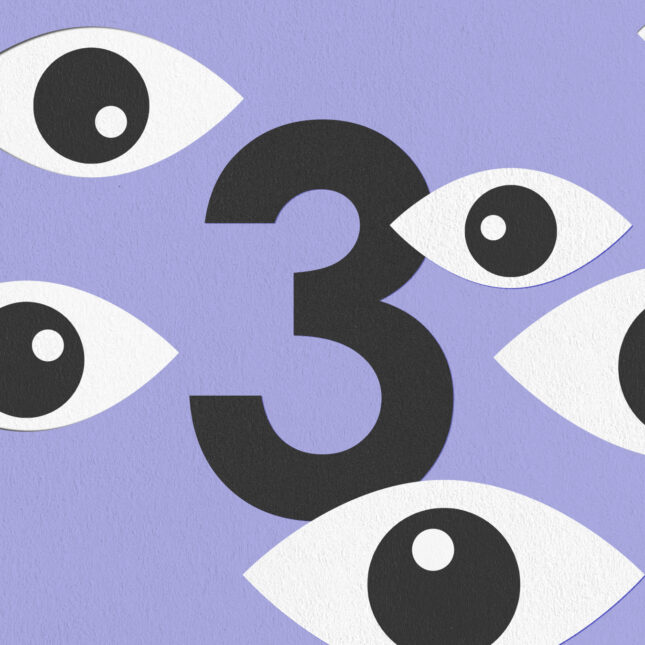
Brace yourself, people with disabilities. 2025 could be a wild one.
Donald Trump’s second term in office is shaping up to be even more consequential than the former president’s first term. Longtime vaccine critic Robert F. Kennedy Jr., — who popularized the debunked claim that vaccines cause autism — is poised to lead the U.S. Department of Health and Human Services. Republicans want to slash Medicaid, the main vehicle for people with disabilities to receive long-term care. Reducing the federal dollars flowing into state coffers will force health officials and politicians to make tough decisions regarding their residents’ health care.
Meanwhile, artificial intelligence is transforming health systems, from research to payroll to making referrals. While researchers have detailed how AI impacts marginalized communities by perpetuating historic health disparities, not enough attention has been paid to how these technologies could affect people with disabilities.
The combination of AI making deeper inroads into health care, and the looming cuts to Medicaid, has experts worried.
“We’re really talking about an existential threat to a lot of progress that people with disabilities have made over the last several decades,” said Jennifer Lav, senior attorney at the advocacy group National Health Law Program.
States automating health benefits
While Medicaid is on the chopping block, it’s not clear yet how Republicans are planning to pare back the federal health program. It could be through work requirements, block grants, or other mechanisms, but the cuts will likely alter states’ calculus for who receives care. As states look for help making healthcare decisions, that could usher in the use of more algorithms to complete tasks like calculating benefits or detecting fraudulent claims.
More states are using these algorithms, sometimes with harmful results. Earlier this year, KFF Health News published a report detailing how Deloitte’s Medicaid enrollment systems — active in nine states — had made numerous errors, including disenrolling eligible individuals in many states. In 2016, Arkansas switched its algorithm for home and community-based services and left Arkansans lying in their own waste. The new algorithm had mistakenly cut care hours for people with diabetes or cerebral palsy, among others.
Experts worry that the advent of generative AI will only exacerbate these problems. Federal oversight remains nascent, and a person’s health or disability status affect their life in unsuspecting ways, such as determining housing for abused children. It is unclear how policy changes during the Trump administration will influence this issue.
“There is a major threat to disabled people’s ability to lead independent and safe lives, and automation is a tool for these cuts. Budget cuts may further push states towards privatizing essential government functions, which erodes accountability to the public,” said Emma Weil, a policy analyst at Upturn, a technology research and advocacy nonprofit.
Threats to community care
Community care is essential for many Medicaid enrollees. For most of the 20th century, disabled activists fought for the right to receive care in their community rather than at an institution. They were fed up with substandard living conditions and awful treatment options when institutional care was the norm. In recent decades, more and more people with disabilities have received care in their homes. However, this care is primed for cuts: long-term services and support account for 30% of the $600 billion spent on Medicaid.
The home care industry has been on life support for years. Direct care workers — providing hours of care to people with complex support needs — are often paid less than a McDonald’s cashier. Biden tried to give the industry a shot in the arm in 2021, but Congress failed to push through a $400 billion bill that would have overhauled home care.
In October, Trump suggested he would pass a tax credit for caregivers, potentially alleviating some of the burden. However, his proposed immigration crackdown would further decimate the industry, as immigrants comprise much of the direct care workforce.
The need for community care will only grow as the country’s population ages. If Medicaid cuts are as steep as Republicans suggest, states might be left with the unenviable position of having to decide, in a room full of people who need care, which vulnerable population they will no longer support.
Politicization of masks
Many disabled people have masked consistently in public since the pandemic started. But in 2024, the perception of masks — a tool to protect — changed. As a recent escalation in the Israel-Palestine conflict triggered protests across the country, many local and state politicians decried mask wearing as a way for protestors to hide their identities. Two jurisdictions in New York even banned wearing them, and the state’s governor is considering a statewide ban.
Masks have become deeply political, and many politicians are ignoring the real threat that some people with disabilities face when not wearing them, said Beth Haroules, a senior staff attorney for New York Civil Liberties Union.
“I think it’s important to debunk the myth that there aren’t true, collateral damages to people’s health when there are mask bans in place,” said Haroules. “I don’t think the state has the right to police a person’s health choices when they affect the person and them alone.”
Though many people still wear masks to protect their health, mask wearing has become less common than at the height of the pandemic. This could soon change. As STAT’s Helen Branswell has extensively covered, H5N1 virus is spreading across dairy cattle and poultry in the U.S. While researchers appear uncertain about the risk to humans, public health officials are bracing for potential impact. Immunocompromised people loathe the idea of masking through another pandemic at a time when elected officials are pushing for a mask ban.
While it’s anybody’s guess what Kennedy or Trump’s other health nominees would do during another pandemic, the Food and Drug Administration nominee Mark Makary has called mask mandates for children “abusive.” During his first term, Trump reportedly blocked the CDC from instituting a federal mask mandate for air travelers in 2020. Many experts expect Kennedy to rein in federal oversight to give states more leeway on health issues.






